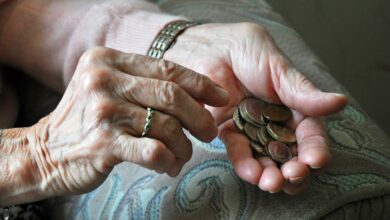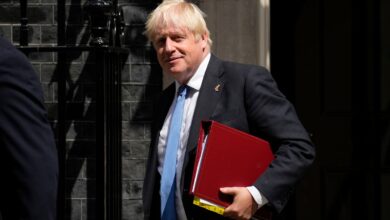NHS ‘close to overheating’ as unions reveal new strikes for January

The NHS is close “overheating completely” during one of its darkest-ever winters, health leaders warned as union leaders stepped up their pay dispute with Rishi Sunak’s government and announced more strikes for January.
Unison revealed two more days of industrial action involving ambulance staff across England on 11 and 23 January, and warned of further strikes in spring if ministers refuse to negotiate on pay.
The Royal College of Nursing (RCN) is also set to reveal January walk-out dates for nurses on Friday, as health leaders pleaded with the government to change its stance get round the table this Christmas.
NHS leaders said there were already signs of pent-up demand putting intense pressure on A&E departments following Wednesday’s strike by ambulance workers – warning that emergency services were running “incredibly hot”.
It comes as new NHS England figures revealed the growing pressure on emergency care, with a quarter of ambulances (24 per cent) in England delayed for more than an hour outside A&Es last week – up from 17 per cent the previous week.
Patricia Marquis, RCN director for England, said the figures showed there was “absolutely no slack in the system, which is dangerously close to overheating completely”.
Saffron Cordery, interim chief executive at NHS Providers, representing hospital and ambulance trusts, told The Independent: “The pressure remains intense. The emergency services are running incredibly hot. Trust leaders are expecting this Christmas to be one of their darkest to date.”
While some ambulance trusts announced on Thursday that have come down from their highest alert levels, they warned the public that the health service will remain under huge pressure over Christmas.
North West Ambulance Service told The Independent it had seen a post-strike surge in calls on Thursday. Some patients would still be advised by 999 staff to make their own way to hospital when it is safe to do so amid continued “unprecedented pressures” following the strike.
South Central Ambulance Service also said it had been hit by “greater 999 demand” on Thursday than during Wednesday’s strike. And the South East Coast Ambulance said it had faced “significant pressure” again on Thursday after a dip in call-outs during the strike.
Ms Cordery said 999 demand for emergency care was down 30 to 40 per cent in some parts of the country during the ambulance strike on Wednesday, but expected the rebound effect from people who had held off from going to A&E to last for several days.
She added: “We’re really worried about the pent-up demand. It will be a very difficult. Trust leaders are extremely worried that more strike action will add to backlogs and aggravate an already deeply challenging situation.”
Unison announced that January’s strikes would involve all ambulance employees in five services across England – including 999 call handlers, not just the response crews who walked earlier this week. The union said the escalation was a direct result of the government’s “repeated refusal” to negotiate on pay.
After the festive break, Unison will also begin to ask around 13,000 staff across ten English NHS trusts, including some nursing staff, if they are prepared to join further strike action in the spring.
Health secretary Steve Barclay has infuriated union leaders by saying they had taken a “conscious decision” to harm people with Wednesday’s strike.
“It’s time Steve Barclay stopped with the insults and fibs and called the unions in for proper talks about improving NHS pay,” said Unison general secretary Christina McAnea.
McAnea and other union bosses were dismissive of reports that Mr Barclay could “fast track” an NHS pay rise next year.
A source close to the health secretary told The Telegraph he was keen to “speed up” the independent pay review body process – set to decide on a pay rise in April 2023 – so the pay aware does not drag on until August.
“Speeding up next year’s pay review body process won’t solve the current dispute, which is about the pitiful amount the government gave health workers this year,” said Ms McAnea. “The government must stop using the pay review body as cover for its own inaction.”





